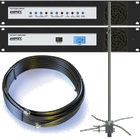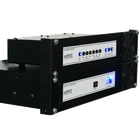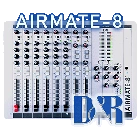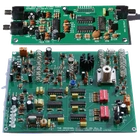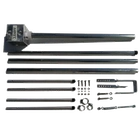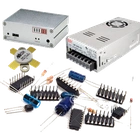5 GHz Broadcast Grade Low Latency Opus Encoded STL
These long range active dish antenna are pre-configured, you just need to physically assemble them and connect them to the Aareff encoder and decoder with the 30mt / 100ft cables supplied. When correctly installed these antennas can send the signal up to 15km LINE OF SIGHT.
PACKAGE CONTENTS CHECKLIST
| 2 x Center reflector panel |
 |
| 2 x Pairs of side reflector panels |
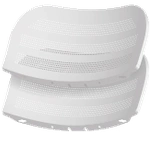 |
| 2 x Feed receiver |
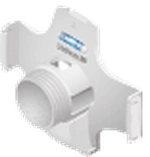 |
| 2 x Ball joint mount |
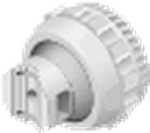 |
| 2 x Metal strap for tube mounting |
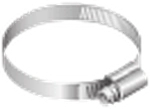 |
| 4 x Set screws |
 |
| 2 x IEC AC C5 type power cord |
 |
| Send Aareff STL Digital Encoder sticker fitted RED |
 |
| Send 30mt cat6 stp/ftp screened network cable marked RED |
 |
| Send antenna feed with 10.41.48.20 sticker fitted RED |
 |
| Receive Aareff STL Digital Decoder sticker fitted BLUE |
 |
| Receive antenna feed with 10.41.48.30 sticker fitted BLUE |
 |
| Receive 30mt cat6 stp/ftp screened network cable marked BLUE |
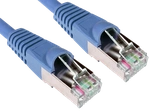 |
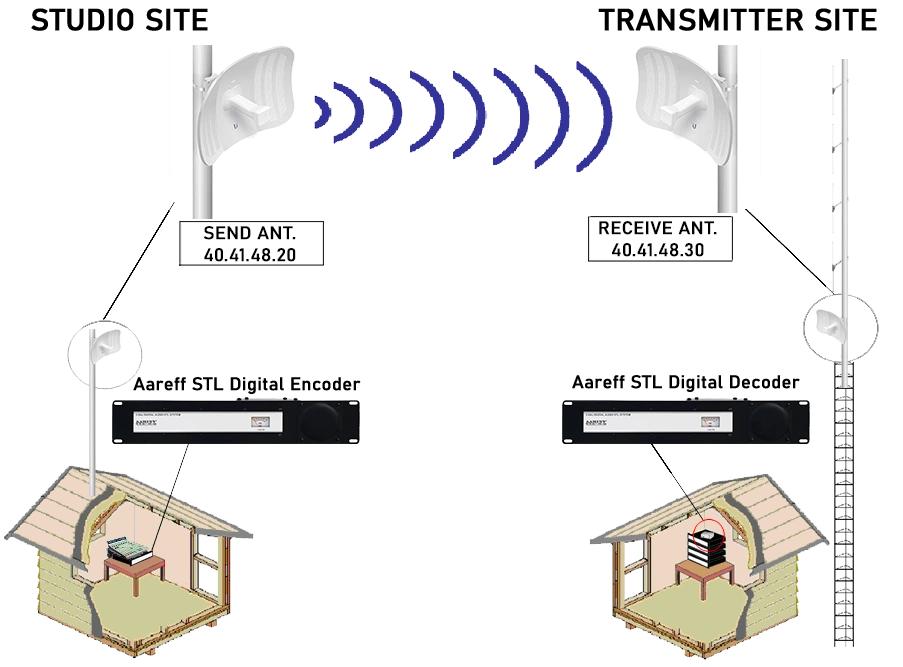
SHORT RANGE USE (LESS THAN A FEW HUNDERED METERS)
If you only intend to use this STL at short range, less than a few hundred meters you don't need to assemble the whole parabolic reflector antenna. You can simply use the antenna feed alone. Just point the encoder and decoder antenna feeds toward each other.
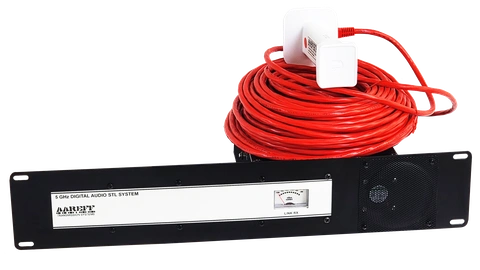
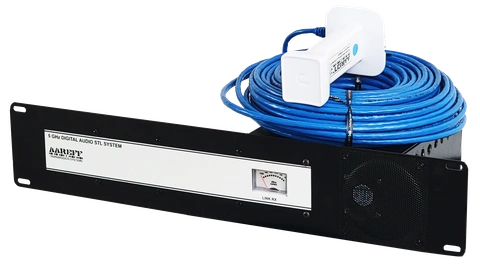
The simplest arrangement can be as shown above. Or you can extend the antenna feeds to a high or different location with the 30mt red and blue CAT6 cables.
If you intend to use the STL this way in short range, skip the next two sections LONG RANGE USE (UP TO 15kM) ASSEMBLE THE PARABOLIC ANTENNA REFLECTORS and INSTALL THE PARABOLIC ANTENNAS and go straight to the section INSTALL THE AAREFF STL DIGITAL ENCODER
LONG RANGE USE (UP TO 15kM) ASSEMBLE THE PARABOLIC ANTENNA REFLECTORS
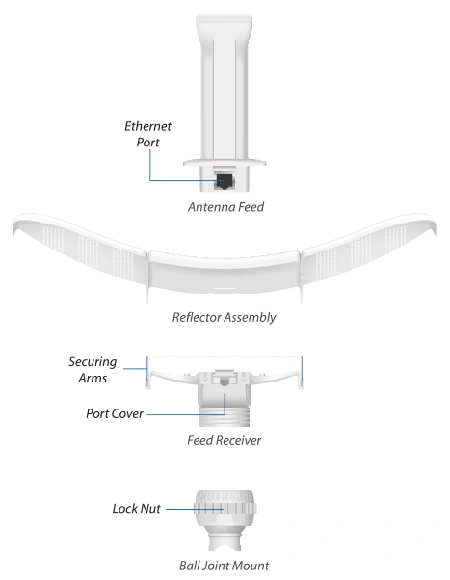
1. Assemble the two antenna reflectors by attaching the Side Reflector Panels to the Center Reflector Panel:
a. Insert the heads of the two mounting studs on the Center Reflector Panel into the large opening of the slotted holes of a Side Reflector Panel.
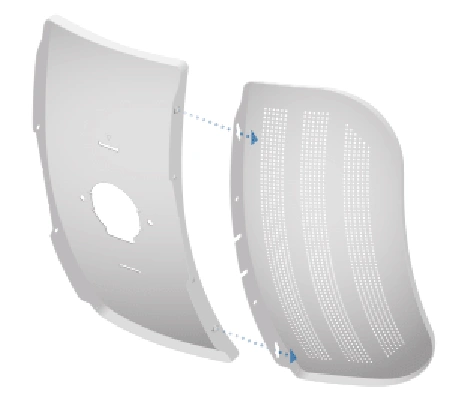
b. Slide the Side Reflector Panel down until the top edges of the panels align. The Side Reflector Panel is captured when both heads of the mounting studs are positioned over the narrow opening of the slotted holes.
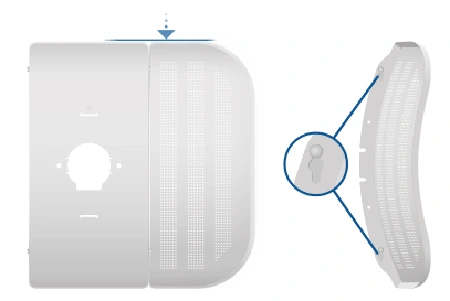
c. Repeat the assembly for the receive Side Reflector Panel.
2. Hold the reflector assembly by hand (do not use a table top or flat surface) and insert the Feed Receiver into the reflector assembly to secure the panels:
a. Align the arrows on the Center Reflector Panel and the Feed Receiver, and insert both edges of the Side Reflector Panels and Center Reflector Panels into the securing arms of the Feed Receiver.
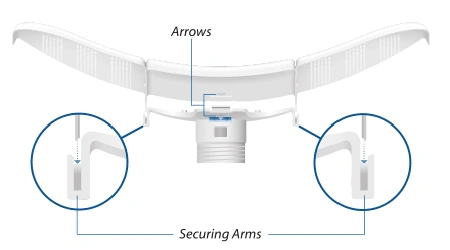
 WARNING!
WARNING!
Do not install the Feed Receiver into the reflector assembly by pushing down onto a table top or other flat surface as this can deform the panels. Hold the reflector assembly by hand.
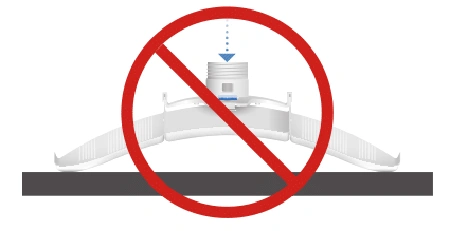
b. Insert the Feed Receiver into the Center Reflector Panel by pressing the top and bottom snap hooks into the slots of the Center Reflector Panel.
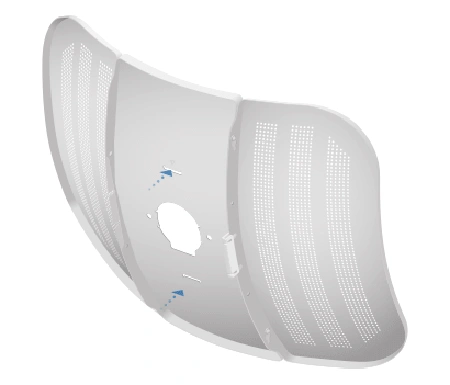
(Optional) For additional support, attach four M3x4 self tapping screws (not included) to the antenna assembly.
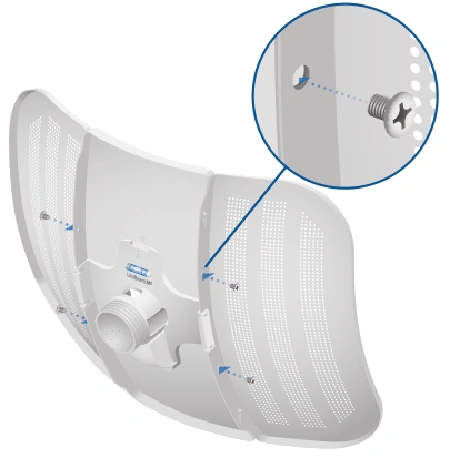
3. Insert the Antenna Feeds marked in RED and in BLUE into the Feed Receiver until the feed locks into place.
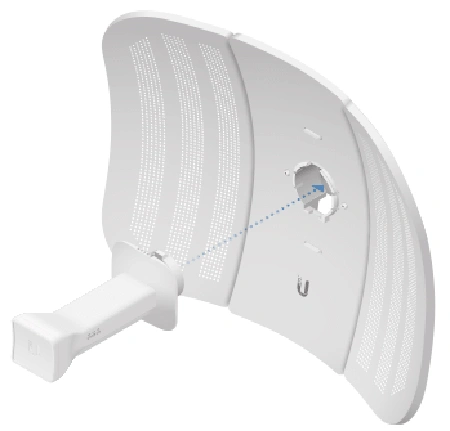
4. Press both sides of the Port Cover and detach it from the Feed Receiver.
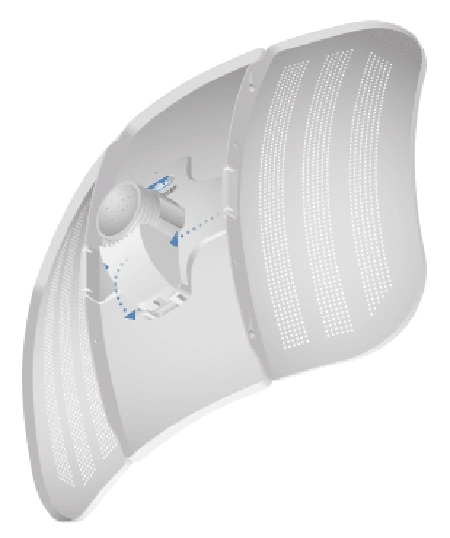
5. Connect the 30 METRE CAT5/6 STP/FTP SCREENED NETWORK CABLE marked in RED to the RJ45 connector of the SEND ACTIVE ANTENNA (10.41.48.20) also marked in RED.
6. Connect the 30 METRE CAT5/6 STP/FTP SCREENED NETWORK CABLE marked in BLUE to the RJ45 connector of the RECIEVE ACTIVE ANTENNA (10.41.48.30) also marked in BLUE.
Make sure both are pushed and locked into the holes properly, these are heavy CAT6 cables and sometimes a little extra push is needed to get them to click into place.
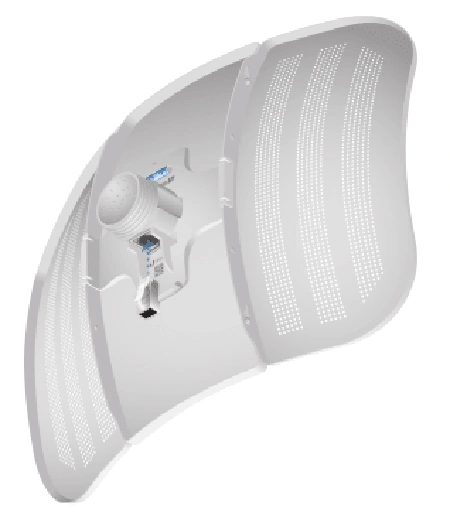
INSTALL THE PARABOLIC ANTENNAS
1. Attach the Ball Joint Mount to the Feed Receiver by turning the Lock Nut clockwise by hand. Do not tighten the nut.
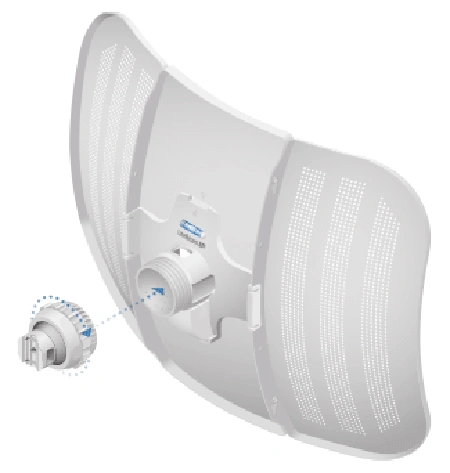
2. Open the Metal Strap and feed it through the base of the Ball Joint Mount.
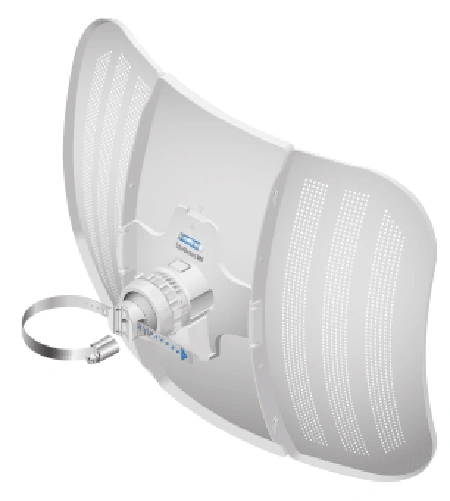
3. Wrap the Metal Strap around the pole. Use a 7 mm socket wrench or screwdriver to turn the screw clockwise and securely fasten the strap to the pole.
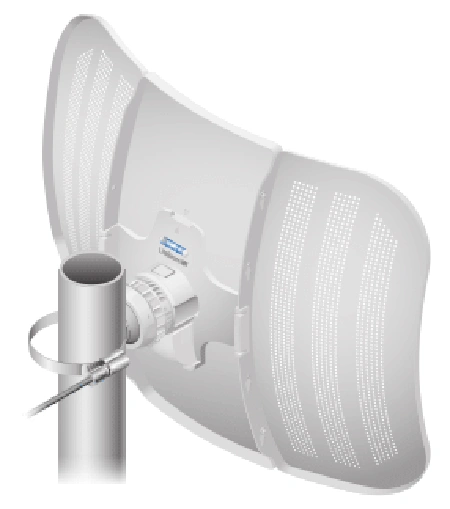
4. Remove the Port Cover and then loosen the Lock Nut on the Ball Joint Mount.
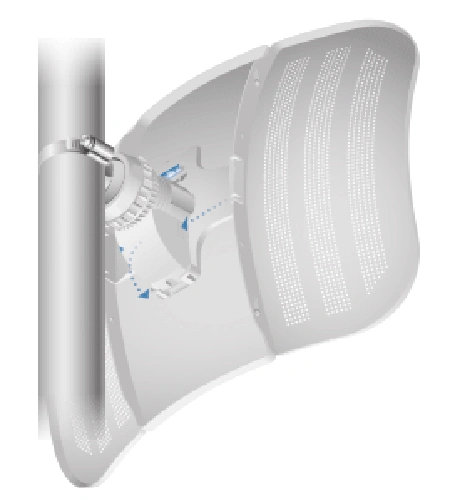
5. Aim the Antenna Feed towards each other forming the STL radio path. Use the bubble level to ensure level alignment, and then lock the aim by hand tightening the Lock Nut.
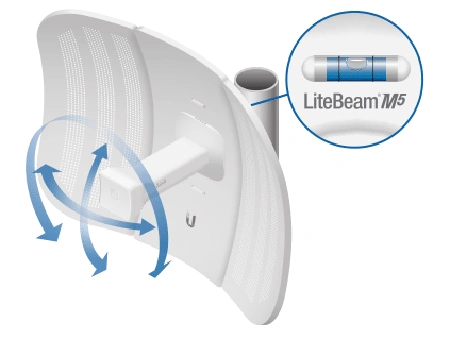
6. Locate the two holes on the Lock Nut, and fasten a Set Screw into each hole to securely lock the aim.
7. Run the 30 meter RED and BLUE cables down to the inside of the studio and transmitter where the Aareff STL Digital Encoder and Decoders are located. These cables should be strapped tight against the metal structure of the tower or pole, this will prevent potential interference problems from the main FM transmitter antennas
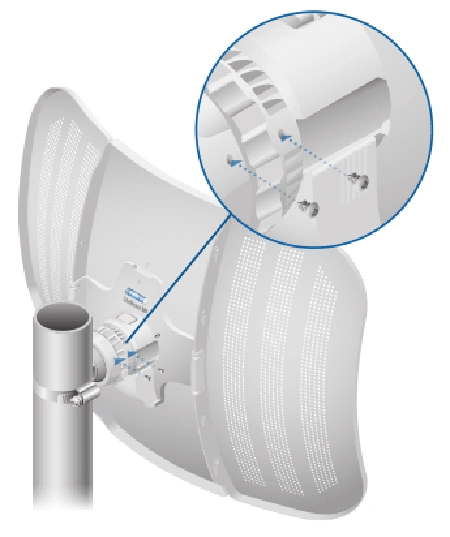
INSTALL THE AAREFF STL DIGITAL ENCODER
◼ RCA Unbalanced 0dBu version

◼ XLR version

◼ Two Studio Switcher with XLR version

There are three versions of this unit shown in the preceding images. Make reference to the one you have.
All versions of this unit are pre-configured to stream Opus encoded digital audio to the Send Antenna Feed marked RED
1. Situate and connect the audio from the studio output directly into AUDIO LINE IN CH1/CH2 or STUDIO 1/2 CONSOLE MASTER LEFT/RIGHT
2. Connect the 30 meter cable marked in RED to the RJ45 POE 25V DC 5W 5GHz socket.
3. Connect the unit to the AC electricity supply between 100V and 240V.
WAIT 45 SECONDS FOR BOOT
and then the front panel meter should light up red. It will change to blue permanently when the link STL is fully connected with a good signal. If there is no connection to main transmitter site or the receive end of the STL it will flash blue every 5 seconds while it is trying to connect.
Okay, that is the studio and send active antenna installed and operational 👍
Now go to the main transmitter site or the receive end of the STL where ever it may be.
INSTALL THE AAREFF STL DIGITAL DECODER
◼ RCA Unbalanced 0dBu version

◼ XLR version

There are two versions of this unit shown in the images. Make reference to the one you have.
This unit is pre-configured to decode the opus encoded audio stream coming down the 30mt cable from the Receive Antenna Feed marked BLUE
1. Connect the audio LINE OUT from this unit directly into the input of the Aareff Limiter ALSCB or other transmitter input.
2. Connect the 30 metre cable marked in BLUE to the RJ45 POE 25V DC 5W 5GHz socket.
3. Connect the unit to the AC electricity supply between 100V and 240V.
WAIT 45 SECONDS FOR BOOT
and then the front panel meter should light up red. It will change to blue permanently when the link STL is fully connected with a good signal. If there is no connection between the STL send and receive points or the signal is bad, it will stay red. If the connection between Aareff STL Decoder and the Receive Antenna Feed (the 30mt cable) is faulty or not connected, it will flash blue every 5 seconds and while it is trying to connect.
FINAL CHECK
If the both active antennas SEND and RECEIVE are pointing at each other with no buildings or trees blocking the view between them, then the STL should activate and start working.
It is normal to take
UP TO 120 SECONDS
for the whole system to boot up and start transferring audio
LAN AND INTERNET MONITORING
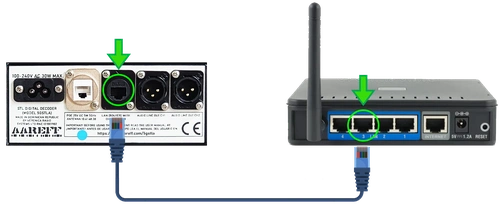
Connect the back of the Encoder or Decoder or both to any available LAN port on the back of your internet router. You can use a standard network cable with RJ45 plugs fitted of any length to do this. If you have an internet connection the Encoder and Decoder will automatically connect via the router to our website to show the status of the STL.
The url for this is:
https://www.aareff.com/ipconnect/[serial number]
So, for example if your serial number of your equipment is 'decoder-600340' then the url will be:
https://www.aareff.com/ipconnect/encoder-600340/
ACTIVE ANTENNA SPECIFICATIONS
| Dimensions | 347 x 260 x 208 mm |
| Weight | 0.7 kg |
| Operating Frequency | Worldwide 5150 - 5875 MHz USA 5150 - 5250, 5725 - 5850 MHz |
| Networking Interface | 10/100 Ethernet Port |
| Antenna Gain | 23 dBi |
| Max. Power Output | 25 dBm |
| Max. Power Consumption | 4W |
| Power Supply | 24V DC POE from Aareff encoder/ decoder units |
| Wind Survivability | 200 km/h (125 mph) |
| Wind Loading | 176.86 N @ 200 km/h |
| ESD/EMP Protection | ±24kV Contact / Air |
| Shock and Vibration | ETSI 300-019-1.4 |
| Operating Temperature | -40 to 70° C |
| Operating Humidity | 5 to 95% Non-condensing |
| Certifications | CE, FCC, IC |
DIGITAL ENCODER AND DECODER SPECIFICATIONS
| Dimensions | 483 x 150 x 89 mm (19 inch rack 2U) |
| Weight | 2.3 kg |
| Networking Interface RF | 10/100 Ethernet Port POE 24V DC |
| Networking Interface DHCP | 10/100 Ethernet Port |
| Audio Input/Output | Stereo Optional: XLR Balanced or RCA Unbalanced |
| Audio Codec | Opus 96 kb/s Stereo 48000Hz 16 bit |
| Transport Protocol | UPD/RTP Low Latency (less than 0.5 sec) |
| Max. Power Consumption | 30W |
| AC Mains Voltage | 100V to 260V 50-60Hz |
| ESD/EMP Protection | ±24kV Contact / Air |
| Shock and Vibration | ETSI 300-019-1.4 |
| Operating Temperature | -20 to +40° C |
| Operating Humidity | 5 to 95% Non-condensing |
LEGAL ADVICE
We sell this equipment to professionals and organizations in good faith it will be used correctly and legally. Nearly every country in the world require licensing for this type of equipment. It is the customer's responsibility to check relevant laws, directives, regulations and licensing requirements before installing or putting this product into service with an antenna system. You, the customer or user agree to defend, indemnify and hold harmless Aareff Systems Limited, it's employees and agents, from and against any claims, actions or demands, including without limitation legal and accounting fees, alleging or resulting from improper or unlawful use of this equipment.
BUY ONE
© 2026 AAREFF SYSTEMS LIMITED
ALL RIGHTS RESERVED. Aareff is a trademark of Aareff Transmission Systems. All contents of this document including, but not limited to the images, logos, text, illustrations are protected by copyrights, trademarks and other intellectual property rights which are owned and controlled by Aareff Transmission Systems or by other parties that have licensed their material to Aareff Transmission Systems. This document in part or whole may not be copied, reproduced, republished, uploaded, posted or distributed in any way, including by e-mail, ftp or any other electronic means
Every care has been taken in the preparation of this document, errors in content, typographical or otherwise, may have occurred. If you have comments concerning its accuracy, please contact Aareff Systems Limited (UK)

 +1 829 698 0733
What Do You Need? Talk To Us
+1 829 698 0733
What Do You Need? Talk To Us
